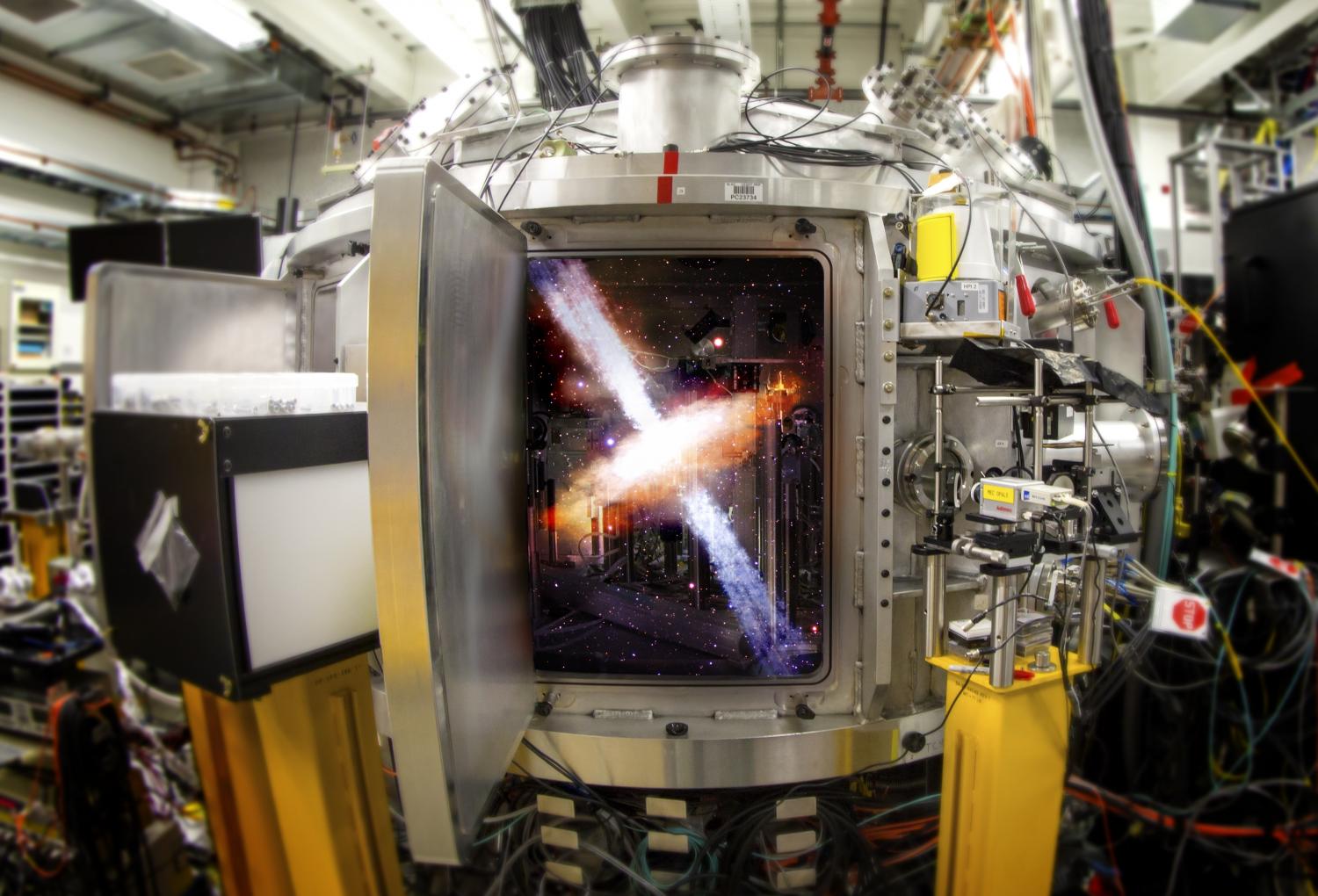Conditions in the vast universe can be quite extreme: Violent collisions scar the surfaces of planets. Nuclear reactions in bright stars generate tremendous amounts of energy. Gigantic explosions catapult matter far out into space. But how exactly do processes like these unfold? What do they tell us about the universe? And could their power be harnessed for the benefit of humankind?
To find out, researchers from the Department of Energy’s SLAC National Accelerator Laboratory perform sophisticated experiments and computer simulations that recreate violent cosmic conditions on a small scale in the lab.
“The field of laboratory astrophysics is growing very rapidly, fueled by a number of technological breakthroughs,” says Siegfried Glenzer, head of SLAC’s High Energy Density Science Division. “We now have high-power lasers to create extreme states of matter, cutting-edge X-ray sources to analyze these states at the atomic level, and high-performance supercomputers to run complex simulations that guide and help explain our experiments. With its outstanding capabilities in these areas, SLAC is a particularly fertile ground for this type of research.”
